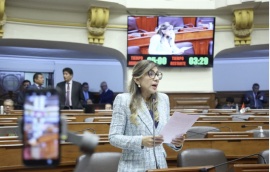On Thursday, May 25, the Peruvian Congress approved with 105 votes in favor of the text which modifies Law 31.557, which regulates the operation of remote gaming and sports betting, to ensure a greater tax collection; and with 103 votes in favor, the National Representation subsequently exempted from the second vote the substitute text of Bill 3.595.
Although the regulation requires a detailed analysis, which was done in part exclusively for Yogonet by the gaming lawyer Carlos Fonseca Sarmiento , it can be highlighted that among the main characteristics approved, the Plenary of the Congress approved that the companies constituted abroad that operate in the country online games or online sports betting, are taxpayers.
According to the current Law No. 31,557 -approved in July 2022- any online gambling company wishing to obtain an operating license must have a Peruvian domicile or establish a physical branch if it is a foreign company, leaving those not domiciled in the country without a clear regulation.
This raised questions from the National Gaming Society (Sonaja) due to the fact that its members -companies incorporated in the country- are taxed with a 12% tax rate on their operations.
#PlenoDelCongreso l Se sustentó el Proyecto de Ley 3595, que propone modificar la Ley 31557, Ley que regula la explotación de los juegos a distancia y apuestas deportivas a distancia, para precisar conceptos y sus alcances.
? https://t.co/HBPzya4da5 pic.twitter.com/nlfwKdSyVX
— Congreso del Perú ?? (@congresoperu) May 26, 2023
With the approved change, the tax field would be leveled. However, the Ministry of Economy and Finance (MEF) believed that the modification approved last night by Congress could contravene the international commitments assumed by the Peruvian State with the Organization for Economic Cooperation and Development (OECD). “The agreement with the OECD indicates that no newly enacted digital services taxes or other similar relevant measures will be imposed on any company not domiciled in Peru as of October 8, 2021, and until December 31, 2023.”
However, for the Congressional Economic Commission, which approved and brought the initiative to the Plenary, the tax on Remote Gaming and Sports Betting applies to the activity and is not a tax on income generated by companies.
read more




